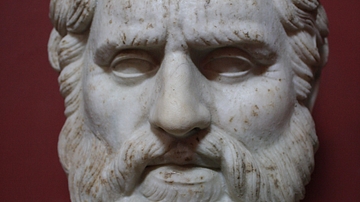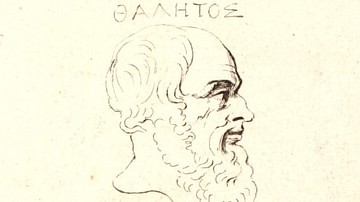Illustration
The Seven Sages (ΟΙ ΕΠΤΑ ΣΟΦΟΙ) of ancient Greece were renowned philosophers, statesmen, and lawgivers celebrated for their wisdom and practical contributions. First explicitly listed in Plato’s Protagoras, they were recognized as "the wise men" as early as 580 BCE. Attributed with timeless sayings like "Know thyself" and "Nothing in excess," many of these maxims, later inscribed at Delphi, were likely popular proverbs retrospectively linked to them. Beyond their aphorisms, the sages were credited with practical innovations and tales of moral insight. While some critics contend they were more pragmatic lawmakers than true philosophers, their legacy left an indelible mark on Greek thought and cultural ideals.
About the Author
Cite This Work
APA Style
Netchev, S. (2024, November 26). The Seven Sages of Ancient Greece. World History Encyclopedia. Retrieved from https://www.worldhistory.org/image/19705/the-seven-sages-of-ancient-greece/
Chicago Style
Netchev, Simeon. "The Seven Sages of Ancient Greece." World History Encyclopedia. Last modified November 26, 2024. https://www.worldhistory.org/image/19705/the-seven-sages-of-ancient-greece/.
MLA Style
Netchev, Simeon. "The Seven Sages of Ancient Greece." World History Encyclopedia. World History Encyclopedia, 26 Nov 2024. Web. 16 Apr 2025.








